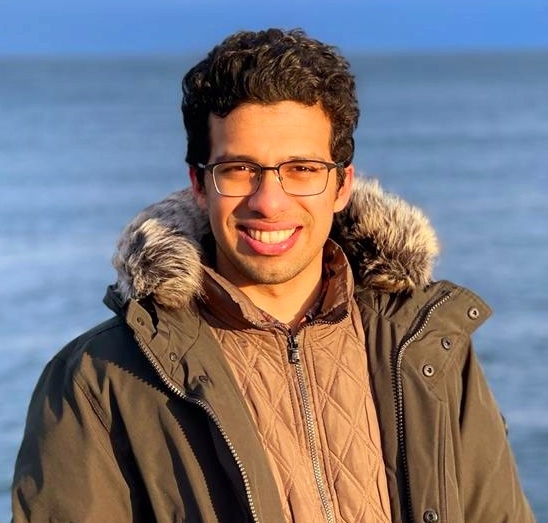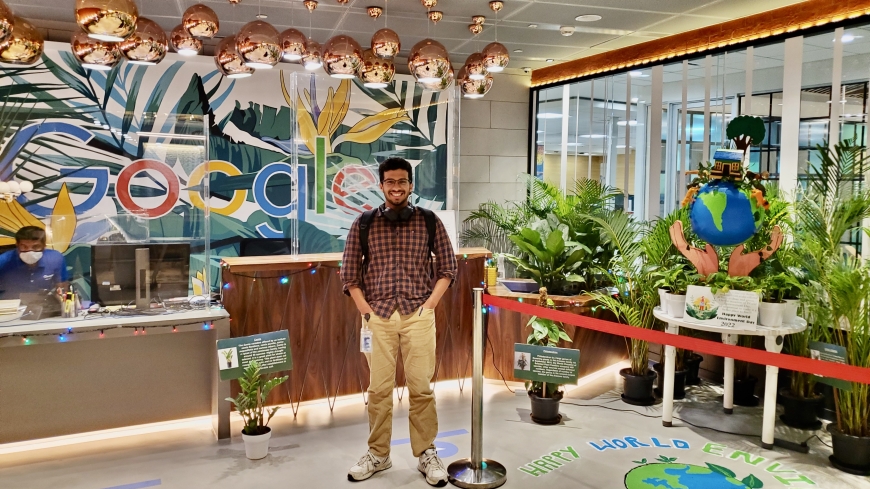Aditya Mate, Ph.D. candidate in computer science
Aditya Mate finished his undergraduate studies with plans to pursue a far different path than the one he followed. He’d earned an undergraduate degree in electrical engineering in his native India, and initially applied to Ph.D. programs in that same field. It wasn’t until after he’d been accepted to the University of Southern California that he came across the work of Milind Tambe, who at the time was the co-director of USC’s Center for Artificial Intelligence in Society and whose lab combined computer science with social impact.
“I was super inspired,” Mate said. “The nice thing about the work done in Milind Tambe’s lab is that it doesn’t have to stop at theory. We actually got to take the theory into the field, deploy it and affect real lives.”
In 2019, Tambe joined the Harvard John A. Paulson School of Engineering and Applied Sciences (SEAS) as Gordon McKay Professor of Computer Science and Director of the Center for Research in Computation and Society. Mate, who’d started his Ph.D. in computer science in 2018, followed his advisor to SEAS, where his research has ranged from the effectiveness of social distancing policies during the pandemic to using machine learning algorithms to improve maternal care in Mumbai.
“Aditya has fit in very well,” Tambe said. “His combination of being able to quickly work out mathematical solutions, while simultaneously being so keenly interested in this kind of social impact work, has been awesome.”
Mate’s efforts to combine machine learning and maternal care stem from a summer internship with Google India and mentor Aparna Taneja. He worked with ARMMAN, a non-governmental organization (NGO) that uses cell phones’ short message services to provide health information to pregnant women and new mothers. While effective for women who stay in the program, the NGO found that a large fraction drop out, potentially putting themselves and their newborns at increased health risks.
Aditya Mate developed a machine learning algorithm to help improve maternal care at NGOs through a summer internship with Google India.
Direct phone calls and live engagement from health workers can mitigate those risks, but NGOs have a limited number of health workers and resources. Mate helped devise a machine learning algorithm that determines which women would most benefit from periodic service calls.
“We were able to launch a pilot test last year involving 23,000 women, and we saw the algorithm prevented engagement drops by 30 percent,” Mate said. “We’ve since transferred the system to the NGO so they can run it on their own. I believe this could be very useful in improving health outcomes. Although our study doesn’t directly measure the effect on health outcomes, that is something for future work.”
The research recently took second place in the INFORMS Doing Good with Good OR (operations research) student paper competition. Since finishing his internship, Mate has continued optimizing the algorithm, hoping to further improve engagement rates.”
“I’m super grateful that the INFORMS award recognizes an impact that goes beyond publishing results,” Mate said.
Tambe’s Teamcore Lab has researched wildlife conservation efforts for nearly a decade, with Lily Xu winning first place in the 2021 INFORMS competition for her research into using machine learning to help wildlife conservation efforts in Cambodia. Helping NGO maternal care is a much newer research area for the lab, only beginning in the last 2-3 years, after Mate came on board.
“This lab and community of peers and Ph.D. students and postdocs has been fantastic to work with,” Mate said. “The best part is there are so many collaborators and excellent researchers. We have the luxury of working with experts from many fields, which really allows us to do this type of interdisciplinary research, which has been really rewarding.”
Press Contact
Matt Goisman | mgoisman@g.harvard.edu

